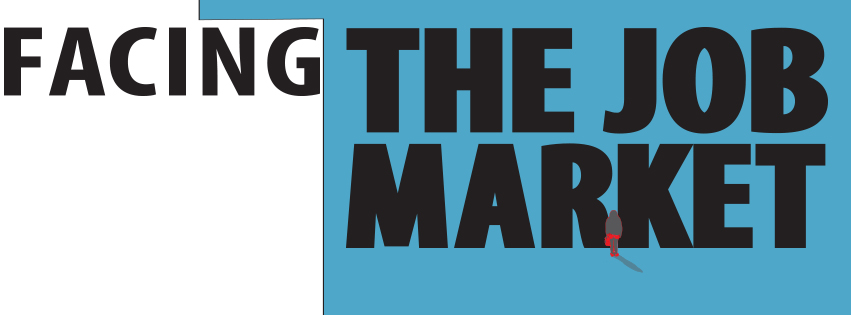Facing the job market
After graduating from Loyola, alumni are struggling to secure jobs in their preferred field
October 29, 2015
When Stephen Hansel graduated from Loyola University with a Bachelor’s in Economics last May, he had a plan for his future.
He would go on to be a successful economics consultant, helping other students make wise economic decisions. But as of this year, his vision has been stifled. Hansel, like many other recent college graduates, has come face-to-face with a competitive job market.
“I’ve been searching for a full-time job for a while now. It’s rough. There are jobs, but there are 60-80 applicants for each one,” Hansel said.
Since Hansel graduated from Loyola, he has worked two part-time jobs: one at the Poydras Home, and the other as a field associate for a political advocacy group called Americans for Prosperity. While both of these jobs require almost polar opposite skills, they present their own issues.
“I’m getting paid more than the minimum wage, but they may not always have the hours I need to pay the bills,” Hansel said.
In December, Hansel will need to start paying for student loans, another mountain that many college graduates have to face in the future.
“It’s definitely not what I was expecting after four years in college. It’s one thing to read about it and another thing to experience it. Most of my friends are working part-time jobs right now. It’s a little embittering, to be honest, but its what we have to deal with at this time,” Hansel said.
According to a recent study on college graduates in the job market by the Bureau of Labor Statistics, college graduates who are underemployed are on the rise. Based on the 2014 study, this trend is largely due to the 2001 recession, some 14 years ago.
Many graduates who find it difficult to land that first job are often not guaranteed an ideal wage, according to a study by the Department of Labor Statistics. Graduates are often searching for a job specific to their field, which contributes to the unemployment rate.
According to an employment projection release by the Bureau of Labor Statistics, the jobs that will be in demand within the next year are service-oriented occupations. These will account for nearly a third of the jobs available in the job market.
For Frank Loria, president of Personal Coaching Group in Metairie, Louisiana, one of the underlying issues is that many college grads don’t have the right degree to fit the jobs in demand in the economy.
“It’s not difficult if you have the right degree. An engineering degree or a degree that is going to bring you a step along is ideal. With a finance degree, people want to go and get a job with JP Morgan and things like that. You typically won’t get hired with just an undergraduate degree,” Loria said.
Loria also said that many times, students go into college not knowing what field to invest in. Often times, students who attend four year institutions have very limited knowledge as to where they would excel in the workplace.
“We don’t really think about it. We just want to pass. A lot of people go into high school and college not having a clue as to how they are wired. We, unfortunately, wait until our junior year to decide to get serious and that’s what can happen,” Loria said.
Tamara Baker, director of the Career Development Center at Loyola University, said that students deciding to apply for jobs at the last minute are just some of the most common issues she has experienced in her 13 years in the field of career development.
“Most students have a very narrow view of the world of work. They haven’t put any effort into planning what they want to do,” Baker said.
According to Baker, college graduates tend to only seek jobs in the field in which they studied in college. They are often misinformed of the many other opportunities available to them in the job market.
“You’re major does not equal a specific career path. A lot of times students are surprised when they go out in the working world and see that everyone working in a specific industry does not have a degree in that area. It is all about marketing your skills,” Baker said.
Loria also believes that understanding who you are and how you learn is the other part of the issue that is often overlooked. While college is a great tool for increasing learning, it can be a burden to pay off student loans in the future.
“Before you get down the road in college, figure out what road you want to be down. A lot of people think that that is the only way you are going to get a job. There are people without degrees making a lot of money. Not everyone is wired for college. There has to be a passion and desire to do what you want to do,” Loria said.
And like Loria, Hansel also offers a similar word of wisdom for college grads seeking their first job.
“I should have applied for internships my sophomore year. That was probably the worst decision I’ve made while I was in college. I would highly recommend applying for internships. If you are not going to be supported by your parents, aim for a more marketable degree,” Hansel said.







